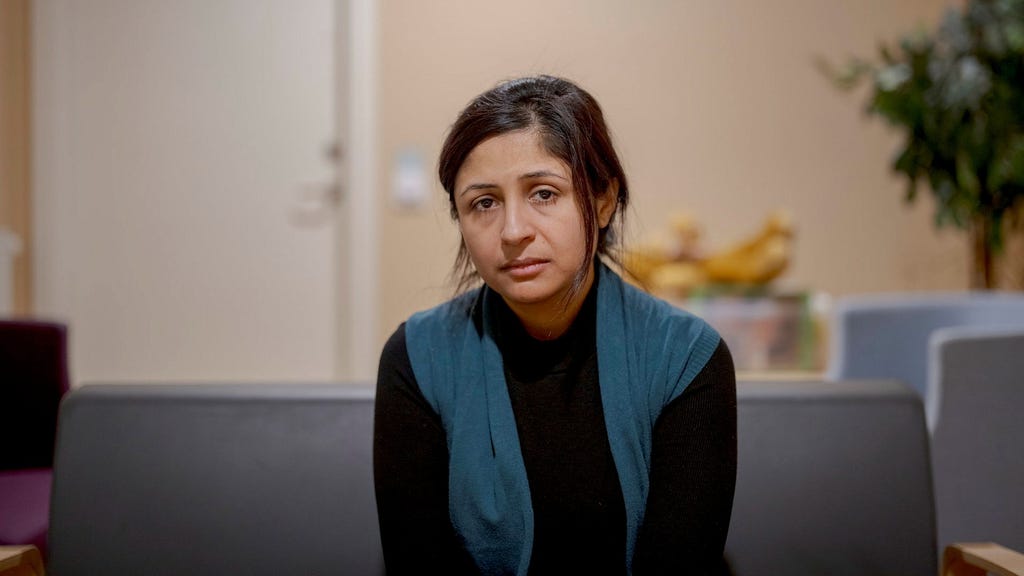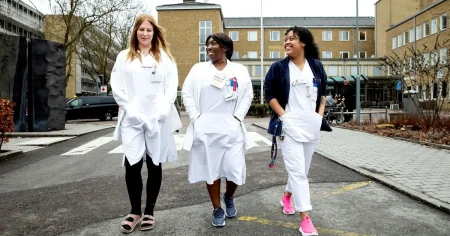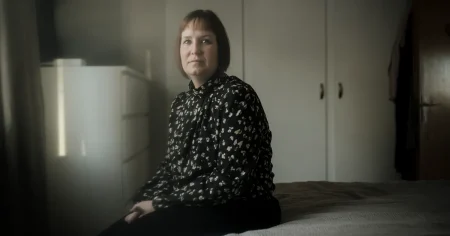Sadia Umar, a trained specialist nurse working in Sweden, finds herself in a Kafkaesque nightmare. For six months, she has been detained by Swedish Migration Agency, awaiting deportation to Pakistan along with her three sons. Her only crime, it seems, is the perceived risk that she might abscond, a claim that contradicts her established life in Sweden. She’s a contributing member of society, employed, paying taxes, owning an apartment, and raising her children. She has consistently cooperated with the Migration Agency throughout her lengthy asylum process, yet she’s treated as a flight risk. Her lawyer has now filed a complaint with the UN, alleging that Sweden is violating her fundamental right to freedom. The irony is stark: a woman seeking refuge and building a life is imprisoned by the very system designed to protect vulnerable individuals.
The conditions of Sadia’s detention are equally distressing. Simple comforts like bringing in food are denied. She’s forced to hurriedly consume meals brought by friends, a stark contrast to the life she has built for herself and her children. This case echoes a previous condemnation of Sweden by the UN Working Group on Arbitrary Detention in the spring of 2022, concerning the disproportionate detention of a man with heart disease. The Swedish government’s response was dismissive, refusing to acknowledge the UN’s findings and maintaining that the detention was justified. Sadia’s lawyer, who also handled the previous case, argues that the authorities have learned nothing from the UN’s criticism. Sadia’s detention, she asserts, is a clear violation of Swedish law, which mandates strong justification for continued detention beyond two months. She advocates for Sadia’s release or, at the very least, placement under supervision, rather than continued imprisonment.
Adding another layer of complexity to Sadia’s case is her autistic son, Arsh. His specific needs and the potential trauma of separation from his mother seem to be completely disregarded by the authorities. The lawyer’s complaint emphasizes the violation of the Convention on the Rights of the Child, specifically the principle of the child’s best interests, which should be paramount in any decision affecting a child. The state’s actions appear to prioritize the perceived risk of Sadia absconding over the well-being of a vulnerable child. This raises serious questions about the Swedish government’s commitment to protecting children’s rights and its understanding of the potential harm caused by prolonged detention.
The root of Sadia’s predicament lies in a fateful marriage. In 2005, she married Umar Daraz, the father of her child, unaware that he belonged to Pakistan’s Christian minority. This detail, concealed by her husband, proved disastrous. Her family, conservative Muslims, would not condone such a union. In Pakistan, where religious and cultural norms often dictate social life, such a marriage is considered taboo. Fearing for their safety, Sadia and her husband went into hiding. He subsequently came to Sweden on a work permit in 2010, followed by Sadia and their children a year later. However, in 2012, her husband disappeared, leaving Sadia alone and vulnerable. She applied for asylum, fearing persecution if she returned to Pakistan due to her husband’s religious affiliation and the societal stigma attached to their marriage.
However, the Swedish Migration Agency rejected her asylum claim, citing inconsistencies in her narrative. They questioned the validity of her husband’s Christian faith, despite evidence presented in his passport, which was used to secure his work permit. Sadia’s support group argues that the Migration Agency’s initial acceptance of the husband’s passport, which clearly stated his religious affiliation, should have been sufficient evidence. The subsequent dismissal of this evidence in the court proceedings raises concerns about the thoroughness and fairness of the asylum process. The agency’s apparent disregard for previously submitted evidence and their focus on perceived inconsistencies instead of the substantive risks Sadia faces, casts a shadow over the impartiality of the system.
The Migration Agency’s stance remains unchanged, even after Sadia presented original passports of her husband and his family, confirming their Christian faith. The agency dismisses these documents as modified versions of previously submitted copies, further fueling the sense of bureaucratic indifference and contributing to Sadia’s despair. The agency’s spokesperson maintains that even with the original passports, Sadia’s asylum claim would be rejected due to perceived inconsistencies in her overall narrative. This unwavering stance, despite mounting evidence and the human cost of prolonged detention, highlights a systemic issue within the Swedish asylum system. The focus on bureaucratic procedures and perceived inconsistencies appears to overshadow the genuine risks faced by asylum seekers like Sadia. The prolonged detention of a mother and her children, particularly a child with special needs, raises serious ethical questions. The case highlights the urgent need for a more compassionate and humane approach to asylum, one that prioritizes the well-being of vulnerable individuals over bureaucratic technicalities.














